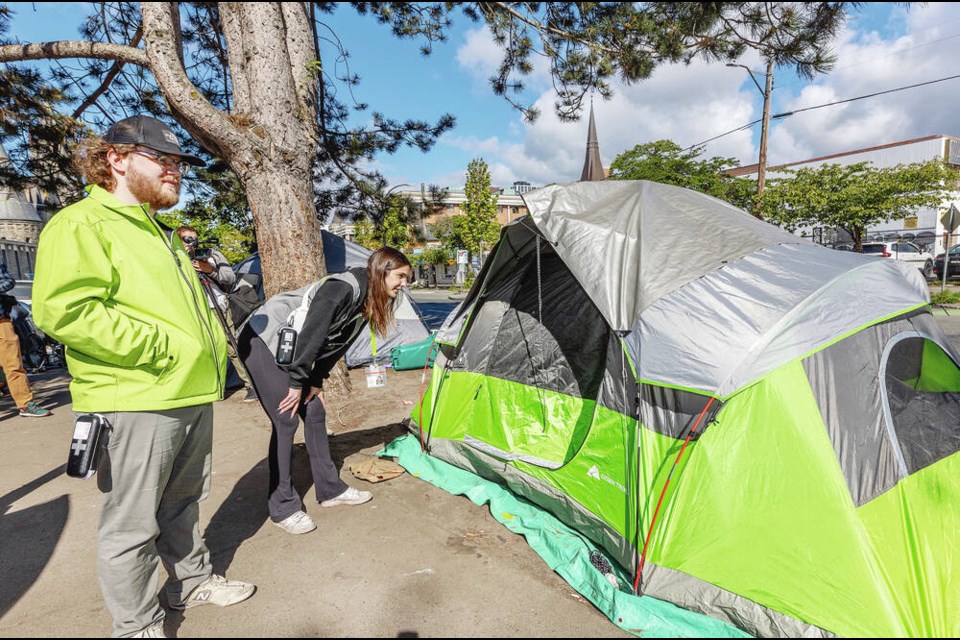Our Place Society hopes to help everyone currently living on the 900-block of Pandora to get off the street by the end of the year.
“I think there’s not a person in this city who is not deeply concerned and dismayed by what they see on Pandora Avenue,” said CEO Julian Daly, standing on Pandora Wednesday surrounded by tents.
No one wants to see the encampment on the block gone more than the people who are living in it, he said.
Our Place’s street outreach team recently spent two weeks surveying everyone living on the block, asking them what it would take to get them off the street.
They collected a list of 77 names along with information on their ages, how long they have been unhoused and what brought them to Pandora, said Daly, adding no one said they wanted to stay on the block.
Ninety-five per cent of those surveyed said they need support for mental-health and addictions issues, while 82 per cent cited physical health problems, he said. Twenty-three per cent said they are more than 50 years old.
Daly called lack of affordable housing in Victoria a “massive barrier,” saying those living on the block “simply do not have the income to pay for rent in our city.”
More and more people are losing their housing because they can’t afford their rent, he said.
How they get off the block will look different for each person, said Daly. Some have said they want a shelter space, while others want transitional housing, detox treatment or to get into a market rental.
Our Place staff will work with people on an individual basis to find the right solution for their situation, he said. “That’s the only real way to do this.”
The charity needs the province to help it find mental-health services, addiction and recovery treatment and housing to shelter everyone, Daly said.
“We know what they want. We know what it will take for them to get inside. We just need those that have the resources to make that possible to come forward and work with us on it.”
While the community on the block is fluid, with people coming and going, there is a core group of people living there, said Cam Harper, one of two people who make up the Dandelion Street Outreach team, which conducted the survey.
The team has been working five days a week on the 900-block of Pandora since January, building relationships with people living there and supporting them by offering rides to appointments, and filling out housing applications and detox referrals.
“The best days at this job are when we’re helping people move into new housing,” Harper said.
On Wednesday, a group gathered at the legislature to demand that housing be recognized as a human right.
The group, Housing Justice Project, released a report calling for the creation of 2,000 deeply subsidized net new units each year over the next decade to end mass homelessness in the region.
Bruce Livingstone, a peer organizer with Housing Justice Project, said he has experienced homelessness several times over the past 25 years.
While unhoused in 2015, he was attacked by someone with a golf club and lost about a quarter of his top teeth. The assault left him unable to eat solid food for years.
“The last time I lost my housing I felt like I wouldn’t survive,” said Livingstone, who now lives in a James Bay apartment building with help from a B.C. Housing subsidy.
>>> To comment on this article, write a letter to the editor: [email protected]



